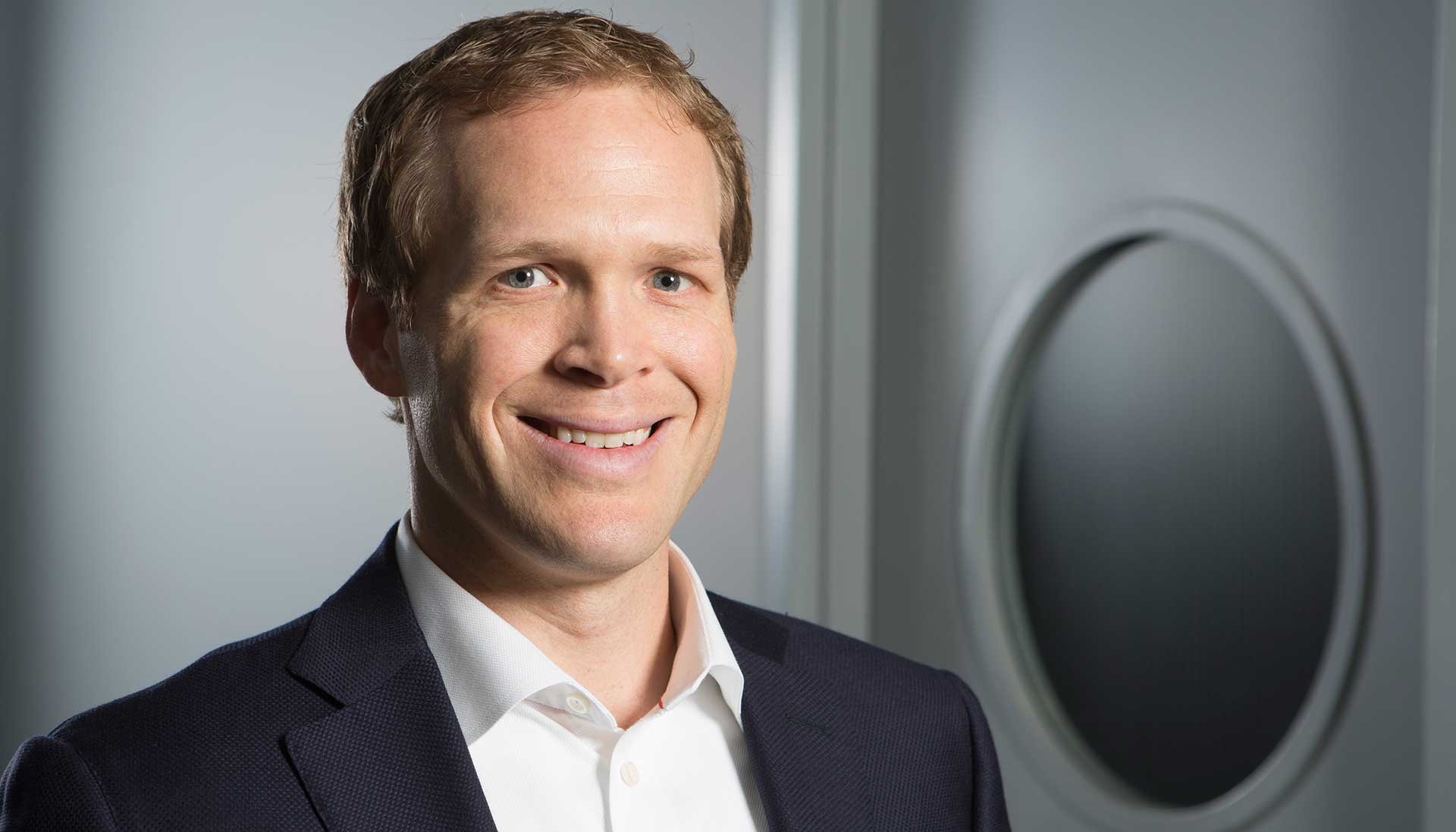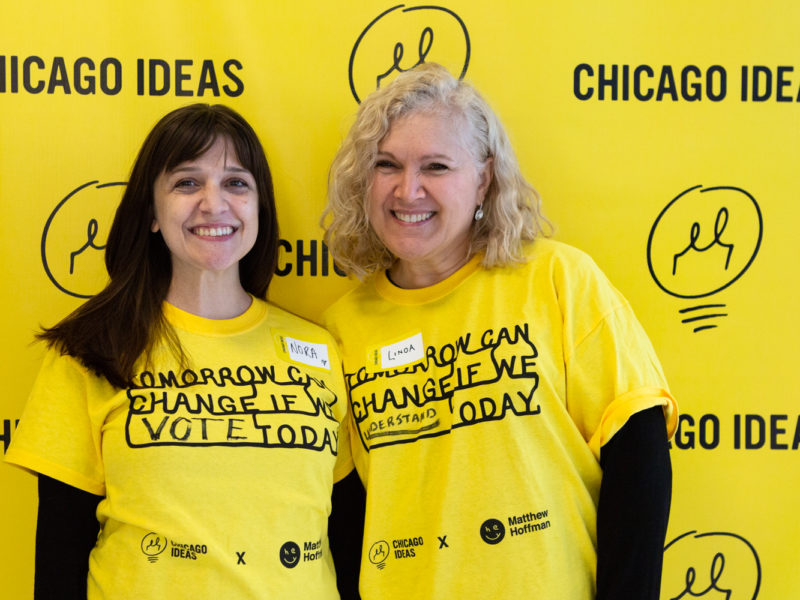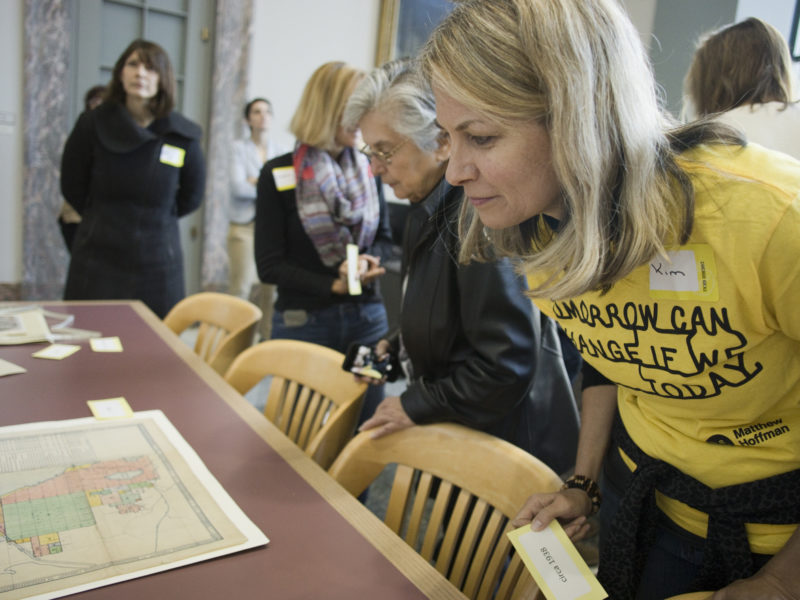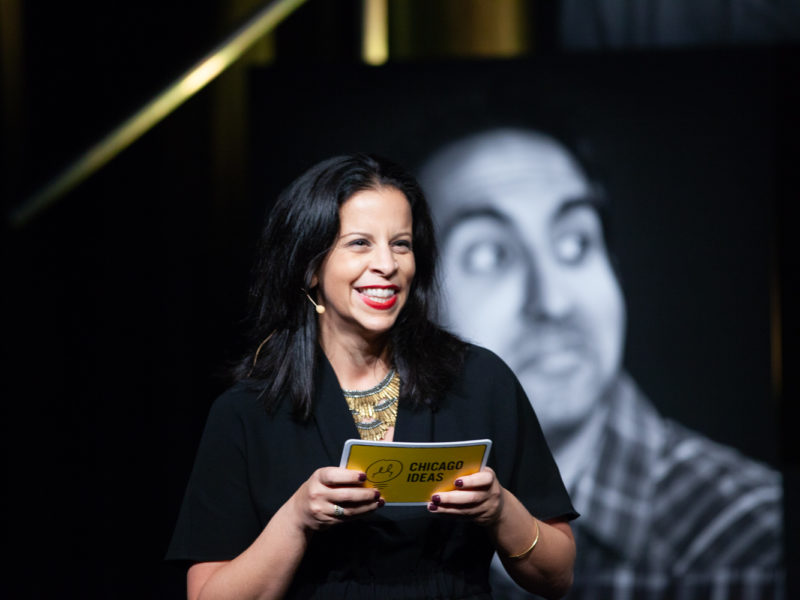
Backstage Pass: Reconsidering the Veteran Experience with Pat Dossett
A graduate of the U.S. Naval Academy, CIW Speaker Pat Dossett served nine years as a Navy SEAL. When he left the military, he quickly entered a very different world: the Wharton School of Business. Now, through the Tip of the Spear Foundation, Dossett supports other special operations personnel and their families, offering among many other services support as they transition from military to civilian life. The Foundation, as Dossett said, aims to fill in the “gaps” in resources that can only “be filled by an organization that can be dynamic, responsive and can specialize in outside-the-box requirements.”
In the first of our Backstage Pass blog series, we talked to Dossett about the challenges veterans face, that “outside-the-box” programming and the ways that conversations like today’s Veterans: Life After Service help “amplify” problems and create solutions.

CIW Speaker Pat Dossett co-founded the Tip of the Spear Foundation to provide unique resources to servicemen and their families.
The Conversation today focused on life after the military. What is the transition to civilian life like for many servicemen?
I think what’s taught me the most about that is being someone who’s made the transition [and] faced many of the challenges that people face when they’re transitioning out. I think people like to make very large generalizations about groups of people—any group of people—and veterans are no different. People like to say veterans are depressed or veterans have PTSD or veterans need handouts. What I’ve found is that veterans, by and large, are a very diverse population with very specific needs and drivers and motivations.
What did you own experience transitioning from the military to civilian life teach you about the types of challenges veterans face, and the types of support they may need?
From personal experience and talking to other people from my background, you face a couple of interesting challenges when you leave. I think one is that when you’re leaving the service you don’t really have a sense of what opportunities are out there. There’s no central place where veterans to go to find out what services and opportunities may be available to them.
[Another challenge is that] oftentimes, people go [into the military] very young. I went in when I was 18. I went to military school and then I spent nine and a half years in the military. The bulk of my formative adult life has been spent in the military. When you get into the military, they take a couple months to take a civilian, a young kid, and make them a soldier and make them a serviceman. When you leave, they spend about four days processing you out. You take someone that’s been focused purely on the military process for so long, and now they’re out in the “real world.” You’re faced with [the realization that] I’ve lived in this very structured environment where there’s a common culture, there’s common values [and] I understand how everything works, to now I’m in this big wide open world, this big ocean. That’s a little bit scary.
Once in this “wide open world,” what types of experiences do veterans have? What is the typical reaction?
I think there is one generalization you can make about veterans. People go in to the military for a lot of different reasons. People stay for different reasons. But everyone when they leave the military—whether or not they went in to serve something greater than themselves—service has become a part of who they are. So when you leave the military and you unplug, you go from this service-focused profession to an individual-focused profession. So service members are trying to figure out: How do I do well and do good at the same time?
You went straight from military life to the Wharton School of Business to pursue an MBA. How were you able to incorporate that type of service mentality into what we imagine is a very individual-focused, often competitive school and business environment?
What I found is that when I got to school I sought out veterans groups. I found that was a real source of strength to me. To be able to look to this group or look to other veterans and when classes get particularly challenging or personal circumstances get challenging or you feel especially disconnected from your past life, you can just look at a veteran and you both kind of get it. To be able to have that is a tremendous resource.
What’s an example of the type of out-of-the-box programming you are able to provide through Tip of the Spear?
We started what I call the pro-kid program this past summer [for Gold Star children, or children who have lost their parents in combat or training]. There are programs out there that help these kids with college education or traditional education on their way to college. There’s no one focusing on helping them with activities outside of the classroom, [like] art lessons or lacrosse camps.
There are now 125 Gold Star children [in the Tip of the Spear family], as of Sunday. We sent applications out to these kids that said, “While your father was in service, he did professional development training to be the best operator or soldier that he could be because that’s what he was passionate about. Just as your father was passionate about that and worked hard to make himself the best he could be, we think that you should be able to do those things your most passionate about.” [We send grants] to help fund whatever these non-traditional activities are outside the classroom.
We’ve gotten applications from kids that say things like, “My dad used to play soccer, and I would like to play soccer, too.” The goal is to do three things with this. One is to help makes these kids the best they can be and pursue things they’re passionate about. Two is to hopefully establish a community where these kids can mutually support each other. The third thing is to connect the child to their father’s service.
Why is it important to have the types of conversations that you will be having today at CIW?
[The other speakers and I] were talking two days ago about what are some of the challenges that veterans face. What are some of the organizations out there that are doing things? What can be done to change misperceptions? This is the answer. It’s getting people together to highlight some of these issues. It’s getting thought leaders in the room that can actually hear about these issues and create the changes that are going to solve some of these challenges that we’re facing. Chicago Ideas Week is an amplifier for all these things. You’re not just focused on highlighting problems, but you’re focused on creating solutions
Q&As are edited for clarity and length.




